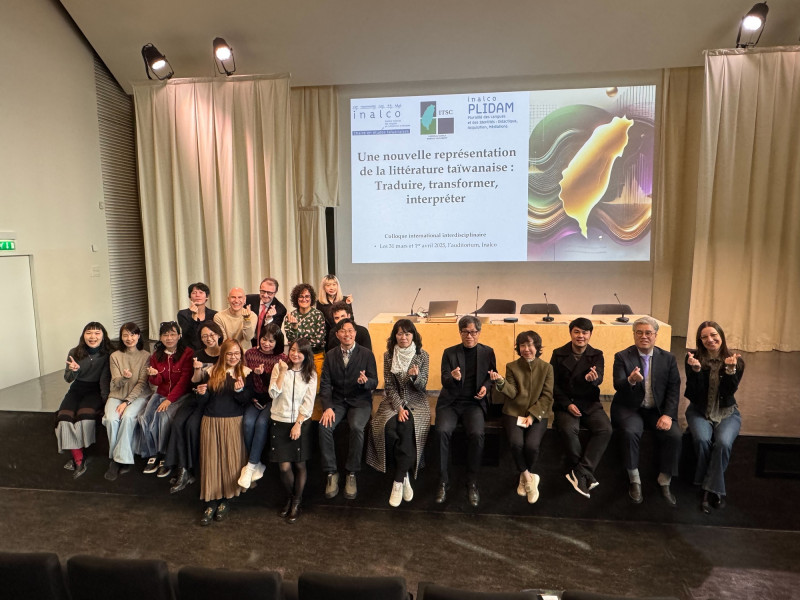The recent symposium “A New Representation of Taiwanese Literature: Translating, Transforming, Interpreting” (臺灣文學新體現:轉譯、轉藝、轉繹 ), held in Paris from March 31 to April 1, brought together such noted international scholars as Professor Liu Chanyueh (劉展岳), Professor Nikky Lin (林巾力), Professor Su Shuo-bin (蘇碩斌), Professor Luca Pisano, Professor Antonio Paoliello Palermo, Associate Professor Li Bi-chhin (呂美親), and Associate Professor Mireia Vargas-Urpi. There, they discussed the “transformation” of Taiwan literature, and how it has brought about manifestations in visual media, music, performing arts, video games, and even cosmetics.
The symposium was co-organized by the Taiwan Studies program at France’s Institut national des langues et civilisations orientales (National Institute for Oriental Languages and Civilizations, INALCO) and the International Taiwan Studies Center at National Taiwan Normal University (NTNU). The goal of this international and cross-disciplinary gathering was to encourage development of new theories centered on three forms of transformation—literary translation (轉譯), artistic adaptation (轉藝), and interpretation (轉譯)—especially those involving cross-cultural components.
In that vein, presentations were made on topics such as how the success of Catalan translations of Taiwan literature showed the appeal and relevance of its themes; how a literary artifact, mahjong tiles belonging to an assassinated author, have been transformed into a video game; and how approaches to adapting literature into musical albums have changed in Taiwan over the last three decades. New transformations were presented in the form of theatrical adaptations and poetry set to music, and new ideas were floated, such as perfume inspired by musical pieces featured in novels.
Transformations such as these are more than just artistic expression; they are extensions of Taiwan literature itself, and help build and highlight the agency of Taiwan’s writers, artists, and creators of all stripes, allowing them to act as literary ambassadors both within Taiwan and around the world.
